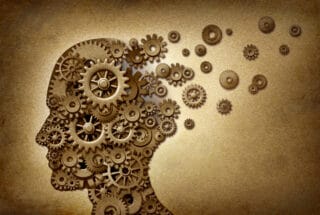
More Mental Health Articles
The Impact Of Mental Illness

The impact on people diagnosed with a serious mental illness is devastating. The devastation often is shared by family and friends. Anthony (1993) discusses four major areas of impact on the person – impairment, dysfunction, disability, and disadvantage. All are important when understanding mental illness and what is helpful to recovery.
Impairment refers to the impact physically and psychologically. There is increasing evidence that there is a neurobiological aspect to severe mental illness. Whether the source is genetic, viral, or a combination of factors, it results in physical and psychological symptoms such as hallucinations, delusions, paranoia. Symptoms may be influenced by the other areas and the psychological structure of the person.
People experiencing impairment and its symptoms often explain it as a loss or disruption of self. There is a disconnectedness to who you are. How to rebuild the sense of self is fundamental. Recovery requires building a functional sense of self that supports needs, wants, aspirations, and confronts the effects of stigma. Other interventions include coping strategies and satisfying social relationships.
Dysfunction addresses the inability to carry out the activities of life considered normal to us as human beings. Tasks such as walking, thinking, or making a meal may be difficult. The cause may be the symptoms previously mentioned, medication side effects or lack of confidence resulting from the disruption of self or stigma. Skills training, support, and rehabilitation improve the levels of dysfunction. As any of these areas of impact improve, the other areas appear to improve as well.
Disability implies a broader concept than dysfunction and limits the ability to perform larger life roles such as working, having a family, and maintaining an apartment. Successful rehabilitation in other areas will also effect the disability in a positive manner.
Disadvantage refers to the lack of opportunity to make a life for one’s self. The cause is often stigma, discrimination, and poverty. Normally, disadvantage comes from outside the person, from a society’s biases and perceptions. It further erodes the fragile sense of self that has been effected by impairment, dysfunction, and disability. Advocacy and education that can influence feelings and beliefs help to reduce disadvantage.
Understanding how a serious mental illness, such as schizophrenia or bipolar disorder, impinges on a person’s being and ability to function gives direction to the roadmap of recovery. Each person’s roadmap will have it’s own twists, turns and detours as the journey continues toward wellness.
Other Articles You May Find of Interest...
- Women’s Mental Health
- Integral Eye Movement Therapy and Relationships
- Overcoming Anxiety: Psychological Strategies That Work
- Mental Health and Wellness: Tips for Maintaining a Balanced Life
- Ten Acts That Can Surprisingly Improve Your Mental Health
- The Future Of Mental Health: Tech Trends To Watch
- How to Create a Supportive Home Environment for Depression

















